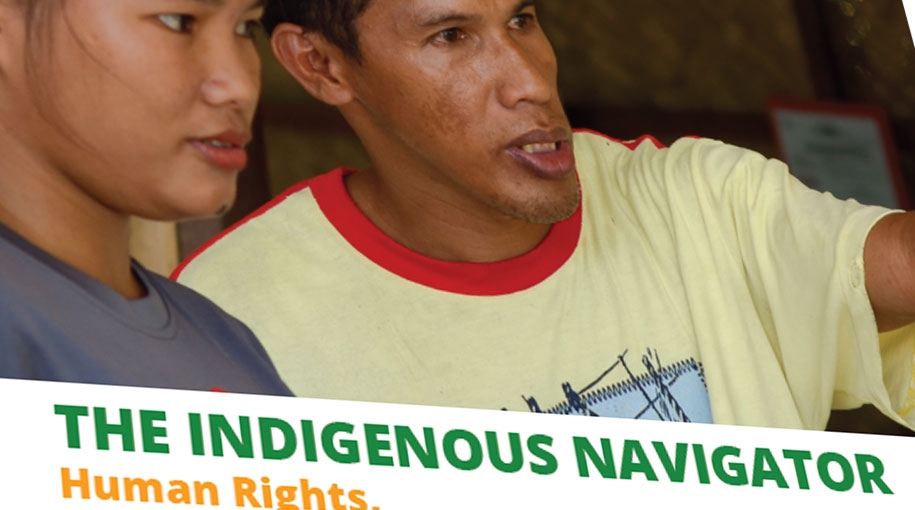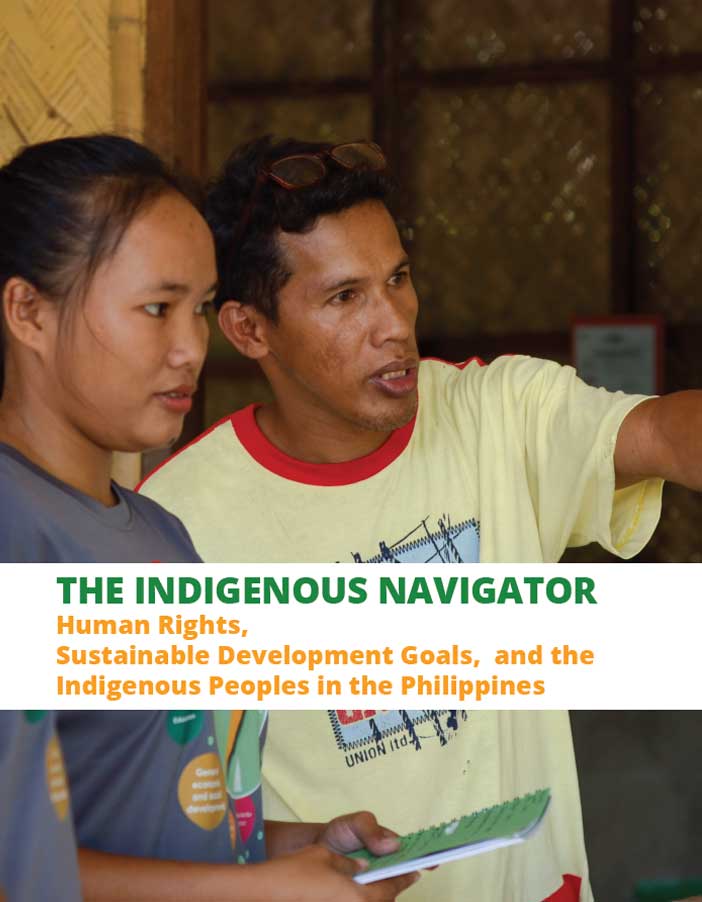Tebtebba released on March 25, 2025 the publication on the report on the national survey on the state of affairs of Indigenous Peoples in the country, based on a framework that was developed by Indigenous Peoples.
The Indigenous Navigator (IN) framework and tools establishes the crucial links between the United Nations Declaration on the Rights of Indigenous Peoples (UNDRIP), the Sustainable Development Goals and the outcomes of the World Conference on Indigenous Peoples. The survey national survey was based on available and verifiable data from government agencies, non-government organization and international agencies over the last five (5) years. The survey started in December 2023 and ended in December 2024.
The publication reveals a mix of pleasant and concerning results. According to Dr. Raymundo D. Rovillos, current the president of a community college in north-central Philippines and the national coordinator of IN-Philippines, “the Philippine State has been implementing the UNDRIP through its national framework, the IPRA, which resembles, in spirit and content, the UNDRIP. This national survey finds that there have been significant milestones and outcomes in the four (4) bundle of rights since the enactment of the IPRA in 1997.” He however adds that “at the same time, there are also continuing actual and potential threats to and violations of these very same rights.”
Dr. Rovillos cites, for example, that “to date, some 16 million hectares of ancestral domains and lands have been given titles by the National Commission on Indigenous Peoples (NCIP), even as several applications still await final action by the NCIP. However, IPs continue to be displaced from their territories largely due to land grabs, mining, agribusiness, dams and logging. Laws that contradict the IPRA continue to be carried out even in areas that have already been applied to as CADTs and CALTs. In some instances, CADTs have facilitated the entry of big business (eg mining) into the IP territories, which have divided the IP communities.”
Dr. Rovillos adds that “there are legal instruments (besides IPRA) that allow IPs to exercise their right to self-government and empowerment. In principle and to some extent in practice, Indigenous political systems and customary laws are recognized by these laws. To a certain extent too, the right to mandatory representation (IPMR) has been carried out across the country. Yet, studies show that the IPMR mechanism has been ‘marred’ by political patronage and captured by the political elite, thereby diffusing the essence of direct, effective and meaningful participation of IPs in governance. The Free and Prior Informed (FPIC) has been leveraged by IPs as an instrument in asserting their right to self-determination. In some cases, they have been successful in doing so, but in many other cases, big business have also been able to leverage the IPRA law and the FPIC process as a means to procedurally obtain consent but not to deliver the substantive aspect of that consent.”
The report also noted that there are several laudable measures, programs and projects by various government agencies that address the IPs rights to cultural integrity. However, there has been a backslide with the recent decision by the Marcos administration to abolish the teaching of mother tongue from the K-12 curriculum. This was done amidst the fact that many Indigenous languages are already considered “endangered” or in the verge of vanishing.
The report also highlighted that there are also several national programs and projects that aim to alleviate poverty among IPs, but the IPs remain the poorest 20% quintile of Philippine society largely because they lack or have no access to basic social services like education, health, potable water, electricity, and others.
With regard to human rights and social justice, the report mentioned that the Philippine Government is doing its best to comply with international human rights conventions and frameworks that it is a signatory to. “But the reports from human rights organizations here and abroad show that much remains to done on the part of the Philippine State, as reflected in the increasing number of IPs who are victims of various forms of human rights violations.”



